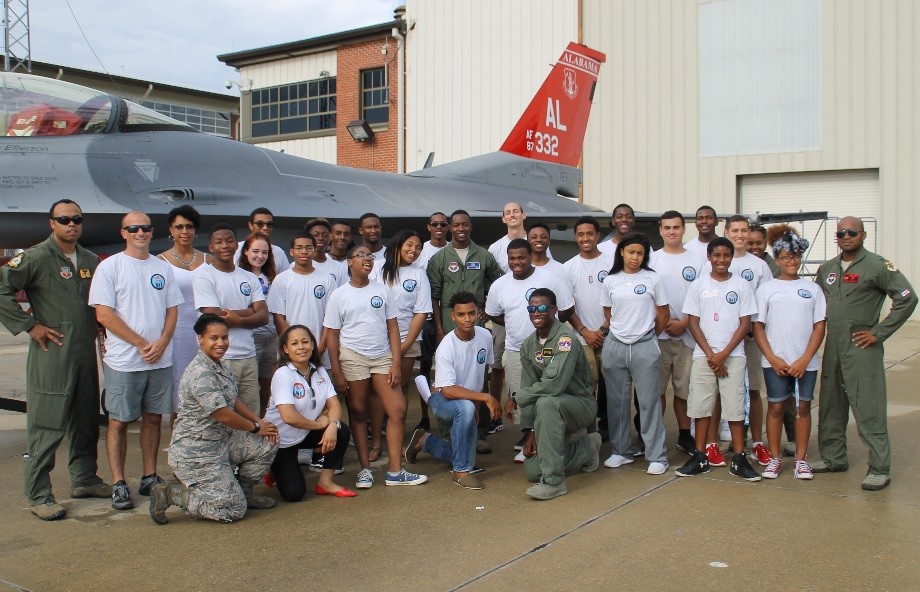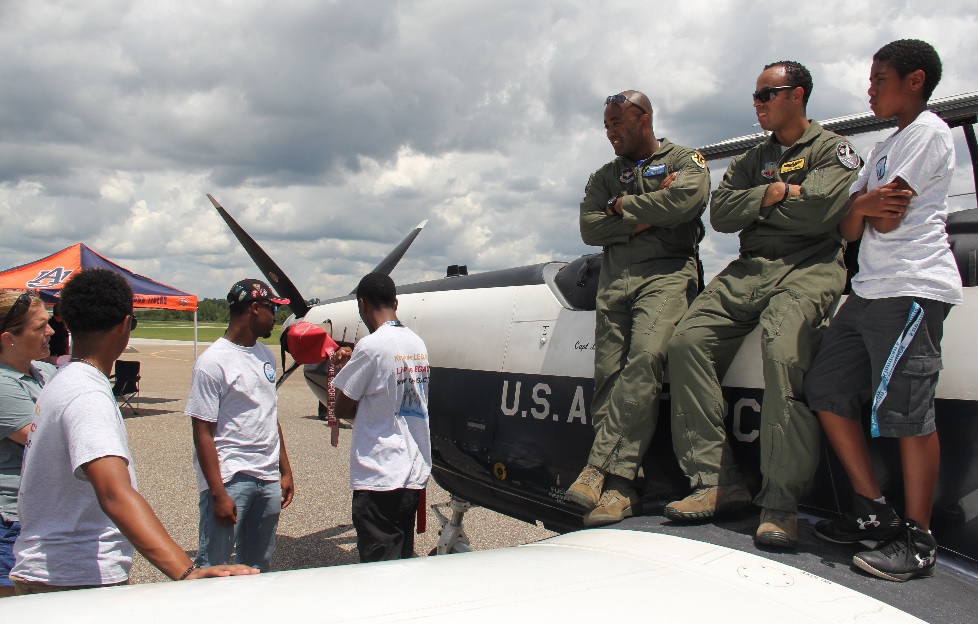
Special to The Times

TUSKEGEE – With statistics showing that less than 2 percent of all commercial and military pilots are African American, Legacy Flight Academy (LFA) is using the history of the Tuskegee Airmen to engage more young people of color to pursue a career in aviation.
“Being a pilot is an exciting and rewarding career,” said U.S. Air Force Major and fighter pilot Kenyatta Ruffin, founder and director of Legacy Flight Academy. “We want to make sure we educate as many young people as possible about this incredible field. Not only are pilots and those in the aviation industry well-compensated, but they get to work on a worldwide high-demand, fast-growing industry.”
This month marks the 75th anniversary when the Tuskegee Airmen officially began training as the country’s first African-American pilots.
The Tuskegee Airmen refers to U.S. Army Air Force units during World War II that were comprised primarily of African American flyers and maintenance crews. Although many expected them to fail, the pilots shattered expectations by proving to be excellent fighters and collecting an impressive military record.
“There were close to 1,000 Tuskegee pilots during WWII, and well over 10,000 black men and women who served as their vital support personnel,” said Ruffin, who founded Legacy Flight Academy in 2012 as a nonprofit organization, and began flying himself at 13.
“It is disheartening when you realize how few black pilots remain today and that’s why we want to mentor young people and make them aware of this field,” he said.
Based on the powerful history of the Tuskegee Airmen, the Legacy Flight Academy helps minorities achieve success as aviation professionals. This month, the Academy hosted a two-week camp for 18 students who travelled from throughout the nation to learn how to fly. The young people trained on Moton Field, the same space used by the Tuskegee Airmen 75 years ago.
Kathy Taylor’s son Jibri Taylor, is a 16-year-old at Legacy Flight Academy who began his program this month and has already flown more than five times. Jibri grew up in Chicago and was turned on to aviation and being a pilot at a young age.
“My son chose LFA because he was able to practice his flight skills,” said Taylor. “His great –great uncle was a Tuskegee Airman, so my son was inspired when he met him and got to hear his incredible stories.”
Jibri said that he decided to enroll at LFA when he realized the curriculum was based on the values of this important aviation milestone for African Americans. Additionally, the camp featured five other African American pilots from both civil and military aviation, plus over a dozen other aviation and military professionals, who worked directly with the students.

Perseverance
One of those instructors, U.S. Air Force Captain Kenneth Thomas, echoes Ruffin’s goal of introducing more students to the aviation field and becoming a pilot.
“Many times, it’s just about exposing youth to career opportunities they may not have thought to consider before,” Thomas said. “A large percentage of our students come from backgrounds where aviation or becoming a pilot was never thought of as a viable option.”
Seeing the look of excitement and engagement on the student’s faces is the real reward, said Major Aaron Jones, another of Legacy Flight Academy’s instructors.
“When you see their eyes light up and recognize that spark of passion for flying, it’s an incredible feeling,” he said. “By teaching them about the Tuskegee Airmen Legacy as well as all aspects of aviation, we inspire a love for flying that we hope continues to grow throughout their lives.”
During the second annual Legacy Open House more than 500 young people were able to learn about the Academy’s curriculum, chat with an original Tuskegee Airmen, Oscar Lawton Wilkerson, and find out about career opportunities open to them.
“I always encourage young people to follow their dreams,” said Wilkerson, who served as a bomber pilot with the Tuskegee Airmen and mentors LFA students. “By sharing the struggles we faced as African-American pilots, I am able to connect with the new generation and rally them on to persevere and work hard.”




